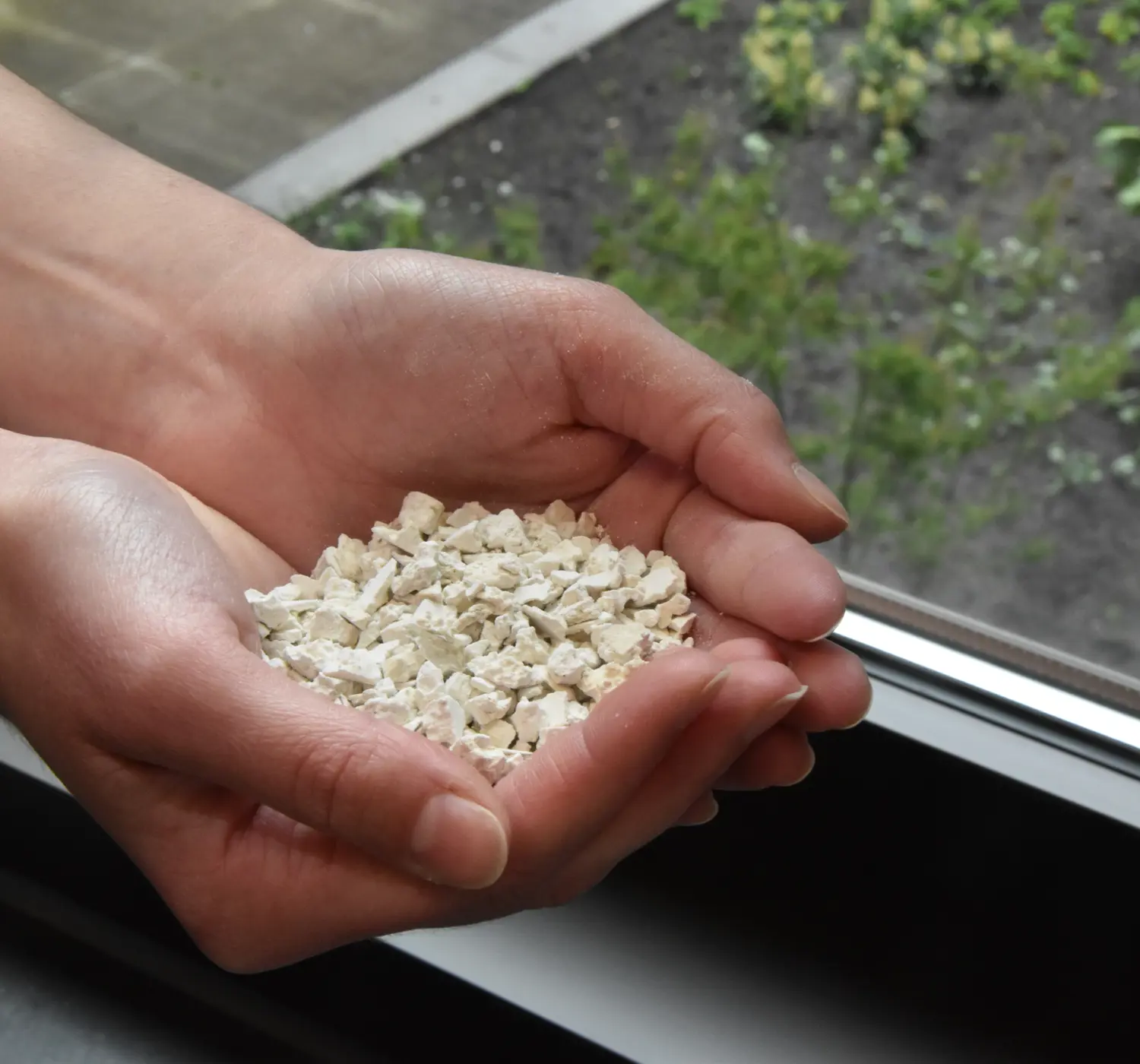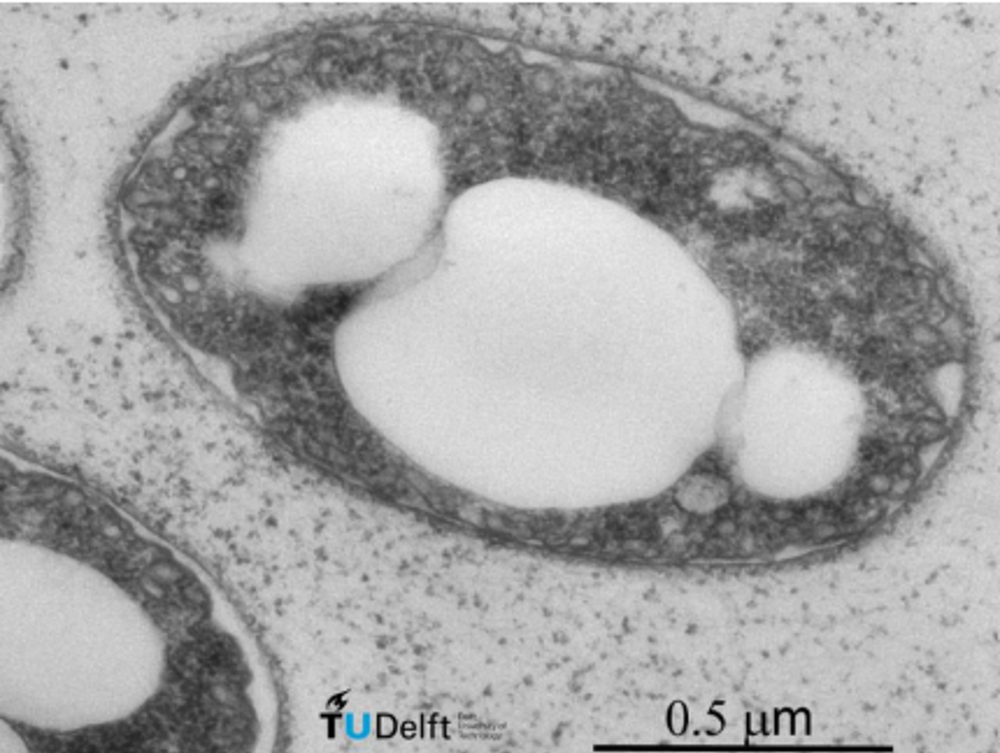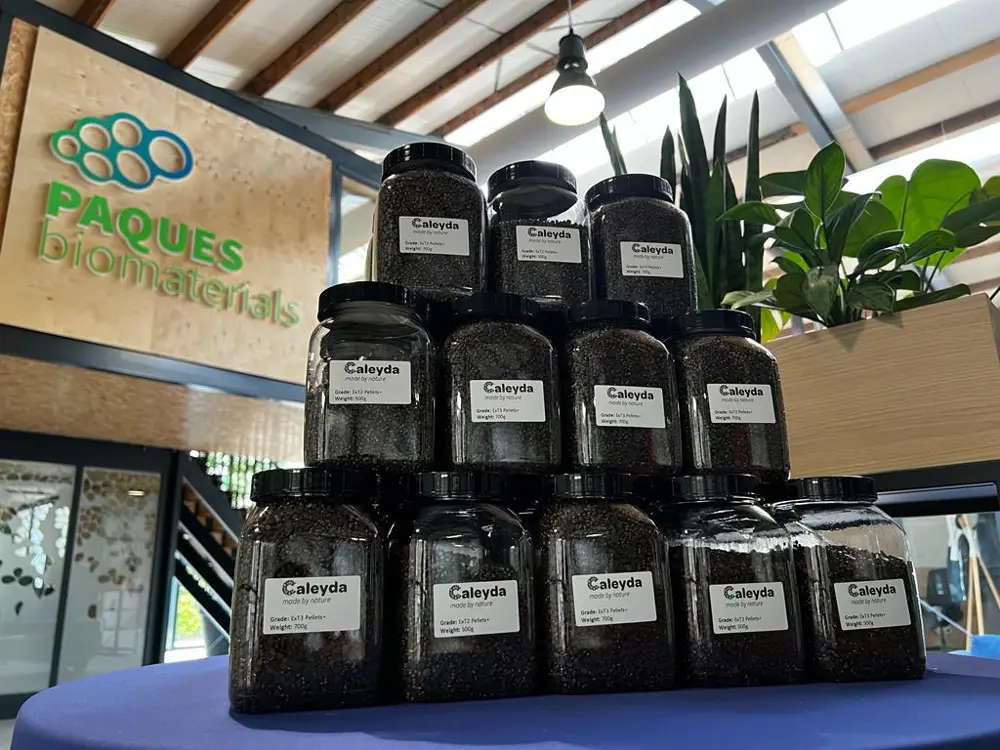
Plastic is everywhere and from its production to its disposal, plastic has a huge impact on our planet. In nature, plastics break down into small particles called microplastics, which accumulate in the food chain. Planet B.io’s resident Paques Biomaterials uses a variety of residual streams to create a biobased and biodegradable alternative to plastic: Caleyda®.
For over ten years, Paques Biomaterials has been working on a technology in which bacteria in side streams produce the biopolymer polyhydroxyalkanoate (PHA). PHA is called the most promising biopolymer because it is made by nature and wholly degraded in nature. With PHA, Paques Biomaterials offers an alternative for the use of conventional (non-biodegradable petroleum-based) plastics that are used in a.o. paints, clothes and agriculture. In this way Paques Biomaterials offers a fully circular solution.

Producing PHA from side streams
PHA polymers are produced by natural bacteria that use the polymer as food reserve, just as humans use fat. These bacteria can accumulate PHA up to 90% of their cell weight, and they can do this while consuming organics in a wide variety of residual streams, such as industrial wastewater or solid organic wastes.
The proprietary technology of Paques Biomaterials harnesses this amazing natural process and accumulates PHA in biomass effectively, stabilizing its quality and purifies the polymer, producing their high-quality product Caleyda®. Caleyda® can be tuned for a wide variety of uses while always keeping its most crucial property: it is fully biodegradable in natural environments.
"By leveraging our proven technology, we aspire to not only lead but also pave the way for others in embracing this material transition. Our overarching goal is to scale up PHA production significantly, making a substantial impact on a larger scale."
PHA extraction pilot
Over the past three years, the technology behind the Caleyda product has been further developed, with bacteria in organic waste streams producing the biopolymer PHA. Paques Biomaterials has extensively tested its technology on a laboratory and pilot scale for over 10 years, and in 2022, in cooperation with five Dutch water boards, and waste & energy company HVC, has built a demo plant in Dordrecht.
Paques Biomaterials is now at the point where a pilot plant will be constructed for extraction. Paques Biomaterials recently secured a promising financial boost with the successful closure of a new funding round, raising €14 million. The funds will be instrumental in scaling up production, with the construction of a Caleyda Extraction Facility in Emmen, a town in the northeastern Netherlands. Producing batch quantities of Caleyda® is crucial for Paques Biomaterials BV as it allows customers to test Caleyda for their applications.
Depending on the success of the plants, Paques Biomaterials plans to build a full-scale extraction plant with a capacity of 6,000 tonnes per year by 2027. It said one of its goals is to have a ‘significant market share’ of the 1 million tonnes the PHA market is estimated to reach by 2027.
"We strongly believe in our cutting-edge technology to create a natural alternative to plastic from organic waste, and we are ready to scale the production to pioneer its market introduction. By leveraging our proven technology, we aspire to not only lead but also pave the way for others in embracing this material transition. Our overarching goal is to scale up PHA production significantly, making a substantial impact on a larger scale," comments Richard Schrama, CCO of Paques Biomaterials.

Biodegradable Controlled-Released Fertilisers
In December 2023, Paques Biomaterials announced the first application of Caleyda, in collaboration with Delft Solid Solutions.
Current commercial fertilisers are made with a petroleum-based plastic coating that is not biodegradable. Using these fertilisers poses a severe threat to microplastic pollution. The European Commission has also acknowledged this huge problem, and consequently, they have set up regulations that will finally prohibit the use of the current generation of controlled-release fertilisers by 2026.
Delft Solid Solutions successfully applied Caleyda® produced from second-generation feedstock as a fully biodegradable coating with controlled-release properties, facilitating the slow release of nutrients in a period from several days to weeks to months. This should avoid further (micro)plastic pollution of the soil using controlled-release fertilisers, entirely in accordance with the EC fertiliser regulations.
Why Planet B.io?
Recognizing the importance of collaboration and innovation in the scale-up phase, Paques Biomaterials strategically based its application team at Planet B.io. Joost Paques, co-found and CEO Paques Biomaterials notes, "One of our core values is Bold Cooperation, and that is exactly what we expect to find here. An ecosystem that we can work with, because that is what we need in the scale-up phase we are in."
With a circular approach to waste, a focus on microbial innovation, and the collaborative spirit fostered at Planet B.io, Paques Biomaterials is set to make a meaningful contribution to the ongoing efforts towards a more sustainable and environmentally conscious future.
Want to learn more about Paques Biomaterials? Check out their website; www.paquesbiomaterials.nl
